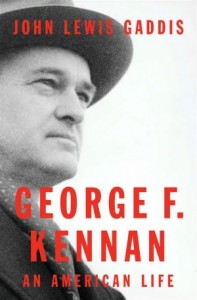In 1946, George F. Kennan, a U.S. diplomat stationed at the U.S. embassy in Moscow, examined U.S./Russian relations in what is famously known as “the long telegram.”
The telegram, sent from the embassy to the U.S. State Department in Washington, outlined directions that greatly influenced our relations with the Soviet Union for the rest of the Cold War.
Kennan summarized Soviet ideology as based on its belief that capitalism is evil and will eventually be overcome by the triumph of the working class. However, the early Russian communists had to first overthrow the Tsarist regime. Since the majority of people in the first communist country, Russia, were not inclined to this “necessary overthrow,” a dictatorship had to be established to bring it about.
Indeed, any opposition to this firm belief in communism had to be fought, including any opposition in the rest of the world, including the United States. Soviet ideology must stress the menace of capitalism.
“It must invariably be assumed in Moscow that the aims of the capitalist world are antagonistic to the Soviet regime . . .” Kennan wrote.
Basically, the Soviets saw communist ideology as absolute truth. If democratic ideas inhibit the growth of this ideology, then democratic ideas must be destroyed.
However, whether the Soviet system would triumph would depend on the success of the different model chosen by the United States. “The issue of Soviet-American relations is in essence a test of the overall worth of the United States as a nation among nations. To avoid destruction the United States need only measure up to its own best traditions and prove itself worthy of preservation as a great nation.”
The overthrow of Soviet rule by Soviet satellite states in the 1990’s obviously was a blow to the communist ideology outlined by Kennan. However, the cheering crowds in Germany and other places should not obscure the fact that dedicated communists like Vladimir Putin remained as dedicated to the communist ideology as ever. They bided their time and are now working their way back into power in Russia and other former Soviet states.
This is the background against which Putin operates today. A Soviet operator in the former East Germany, Putin saw the Communist regime in east Germany topple. His world suffered ignominious defeat.
With this background, we can see the challenge posed by a Ukraine desirous of democracy, including connections with democratic nations of Europe.
Yet the stakes are bigger even than Ukraine or a few former Communist bloc countries. The communism of Vladimir Putin is patient. It believes capitalism will eventually implode, overcome by capitalist selfishness.
Perhaps we should understand the importance of the choices we are making regarding the kind of capitalism we choose. That which plays into Putin’s hands, in which the rich get richer and the rest pay more of the country’s taxes? Or a more responsible kind which, among other choices, takes care of its children and vulnerable citizens and is upheld by a fair system of taxation?


 American citizens built bomb shelters and wondered if their children would have a future. Christians feared the Soviet Union’s embrace of atheism.
American citizens built bomb shelters and wondered if their children would have a future. Christians feared the Soviet Union’s embrace of atheism. The book, which won the 2012 Pulitzer Prize for biography, brings alive those times of fear bordering on hysteria. It hints of policies which might serve us in our current conflict.
The book, which won the 2012 Pulitzer Prize for biography, brings alive those times of fear bordering on hysteria. It hints of policies which might serve us in our current conflict.